-

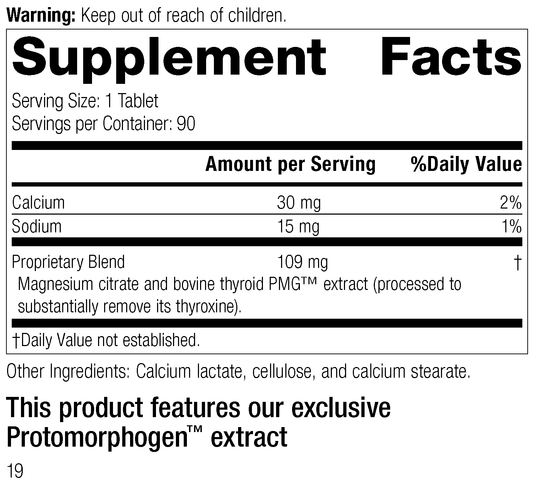
Thytrophin PMG®, 90 Tablets
Thytrophin PMG®, 90 Tablets
Vendor:Standard Process Inc(42)Regular price $25.85 USDRegular priceUnit price perThytrophin PMG contains bovine thyroid PMG™ extract, a proprietary Protomorphogen™ blend. PMGs contain a unique profile of nucleotides and peptides from bovine thyroid. Suggested Use: One tablet, three times per day on an empty stomach, or as directed. Special Information: This product features our exclusive Protomorphogen™ extract. Warnings: Keep out of reach of children. Nutrients & Ingredients Each Serving Size (1 Tablet) contains: Calcium 30 mg, Sodium 15 mg. Pr...
-

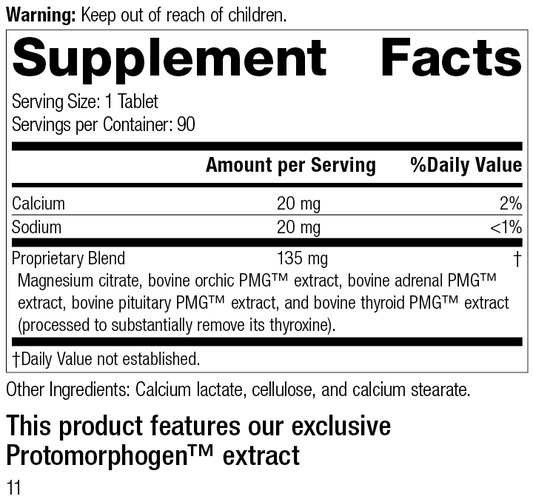
Symplex® M, 90 Tablets
Symplex® M, 90 Tablets
Vendor:Standard Process Inc(42)Regular price $22.55 USDRegular priceUnit price perSymplex M, a supplement for men’s health, contains a proprietary Protomorphogen™ blend. PMGs contain a unique profile of nucleotides and peptides from bovine orchic, adrenal, pituitary, and thyroid. Suggested Use: One tablet per meal, or as directed. Warning: Keep out of reach of children. Nutrients & Ingredients Each Serving Size (1 Tablet) contains: Calcium 20 mg, Sodium 20 mg. Proprietary Blend 135 mg: Magnesium citrate, bovine orchic PMG™ extract, bovine adrenal PMG™ ...
-


Canine Adrenal Support, 3.5 oz (100 g)
Canine Adrenal Support, 3.5 oz (100 g)
Vendor:Standard Process Inc(42)Regular price $79.20 USDRegular priceUnit price perCanine Adrenal Support is an adrenal support supplement for dogs that supports the adrenal gland’s ability to rebuild, regenerate, and respond to stress. This supplement is formulated to: Help the adrenal glands respond normally to stress and metabolic demands Support the glands' ability to rebuild and regenerate Provide vital nutritional support to related dogs’ bodily organs The adrenal glands help the body adapt to stress through the release of corticosteroids and hormones. This affect...
-
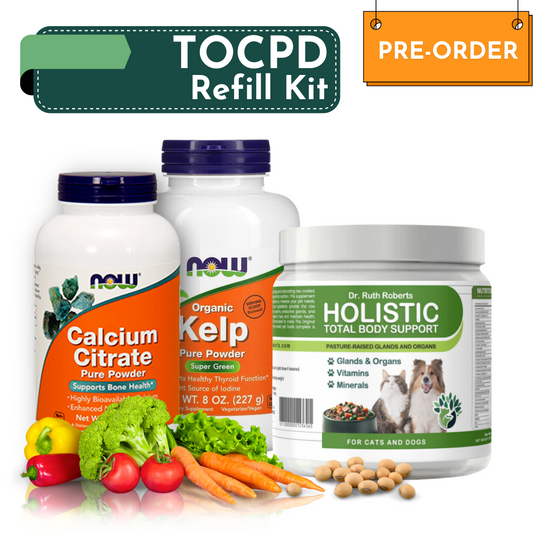
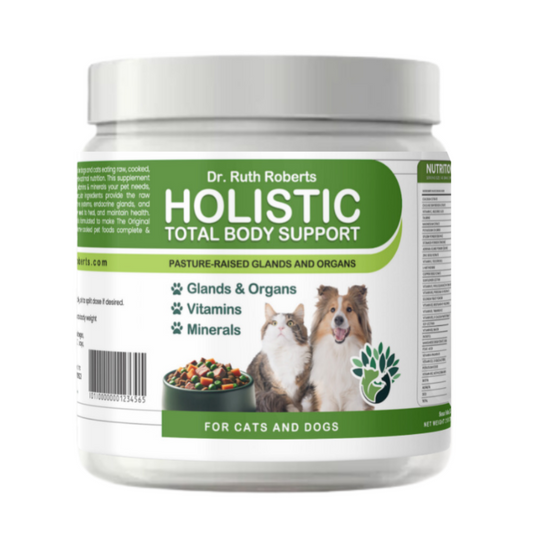
The Complete Crockpet Diet Refill Kit with Organic Kelp
The Complete Crockpet Diet Refill Kit with Organic Kelp
Vendor:Dr. Ruth Roberts(42)Regular price $88.31 USDRegular priceUnit price per$92.98 USDSale price $88.31 USDIf you are ready to change your pet's health for the better, right away, you're in the right place! Our pets' best resource for better health begins right in their bowl with the foods they eat. Feeding your pup the healthiest, safest food on the planet is a huge step in improving their overall health and happiness. What's included in each kit? Each Complete CrockPet Refill Kit includes the following products: Holistic Total Body Support Multivitamin for Cats & Dogs Organic Kelp, Pure P...
Sale -
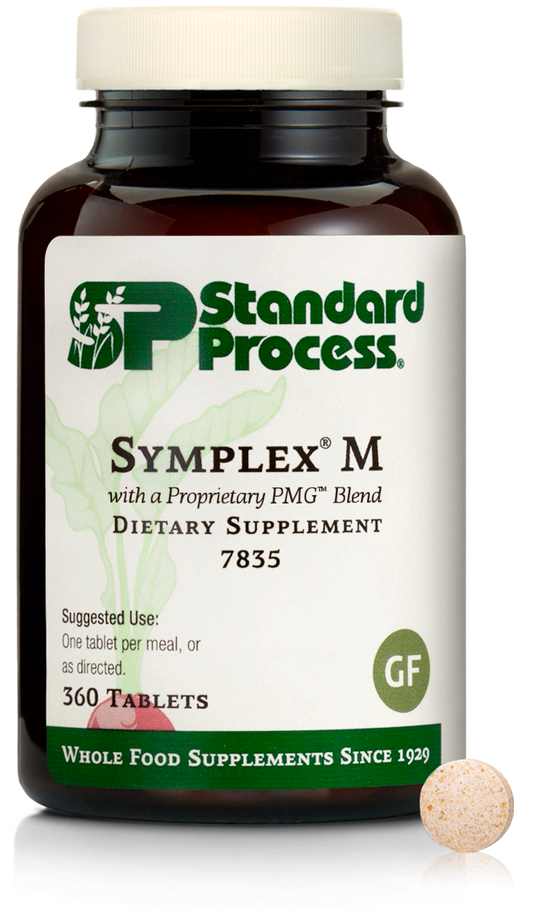
Symplex® M, 360 Tablets
Symplex® M, 360 Tablets
Vendor:Standard Process Inc(42)Regular price $80.85 USDRegular priceUnit price perSymplex M, a supplement for men’s health, contains a proprietary Protomorphogen™ blend. PMGs contain a unique profile of nucleotides and peptides from bovine orchic, adrenal, pituitary, and thyroid. Suggested Use: One tablet per meal, or as directed. Warning: Keep out of reach of children. Nutrients & Ingredients Each Serving Size (1 Tablet) contains: Calcium 20 mg, Sodium 20 mg. Proprietary Blend 135 mg: Magnesium citrate, bovine orchic PMG™ extract, bovine adrenal PMG™ ...
-


Canine Adrenal Support, 0.9 oz (25 g)
Canine Adrenal Support, 0.9 oz (25 g)
Vendor:Standard Process Inc(42)Regular price $23.65 USDRegular priceUnit price perCanine Adrenal Support is an adrenal support supplement for dogs that supports the adrenal gland’s ability to rebuild, regenerate, and respond to stress. This supplement is formulated to: Help the adrenal glands respond normally to stress and metabolic demands Support the glands' ability to rebuild and regenerate Provide vital nutritional support to related dogs’ bodily organs The adrenal glands help the body adapt to stress through the release of corticosteroids and hormones. This affect...
-
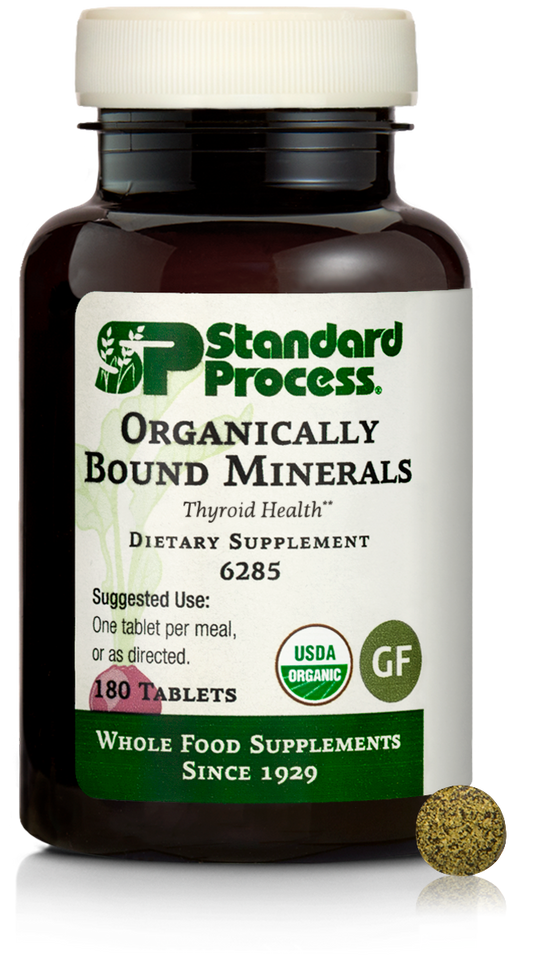
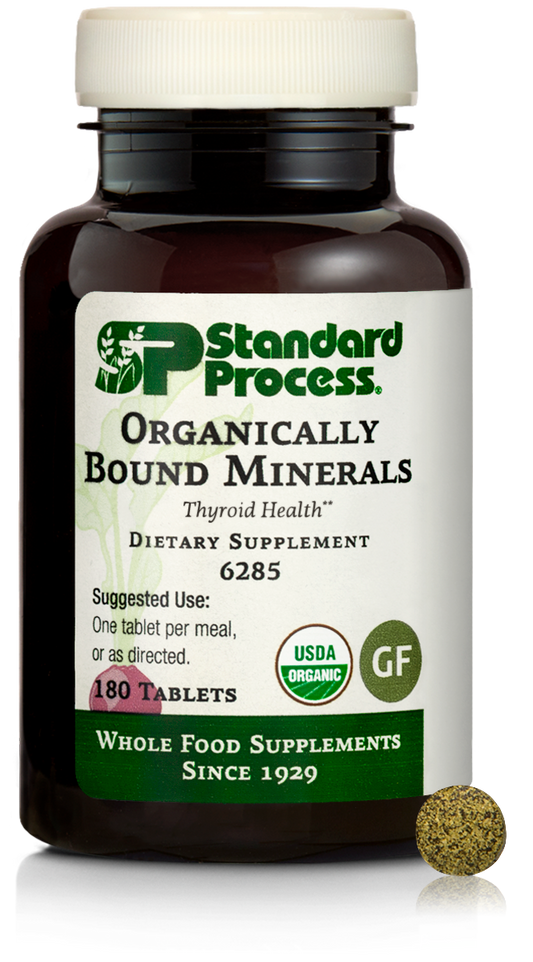
Organically Bound Minerals-Organic, 180 Tablets
Organically Bound Minerals-Organic, 180 Tablets
Vendor:Standard Process Inc(42)Regular price $39.60 USDRegular priceUnit price perOrganically Bound Minerals contains iodine from alfalfa and kelp. Includes whole food-sourced ingredients with complexity maintained through careful processing Contains iodine that supports thyroid function/thyroid hormone levels* Supports healthy metabolic processes* Iodine is an integral part of thyroid hormones that help regulate cellular energy production* Supports a healthy musculoskeletal system* Supports nervous system health* Excellent source of iodine Suggested Use: One ...
-
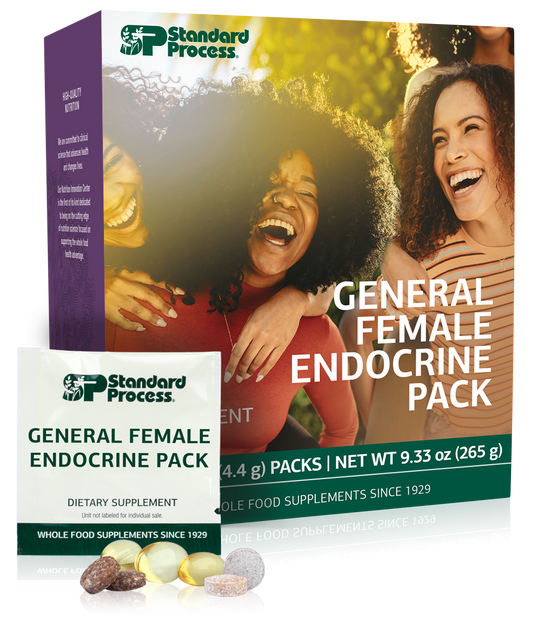
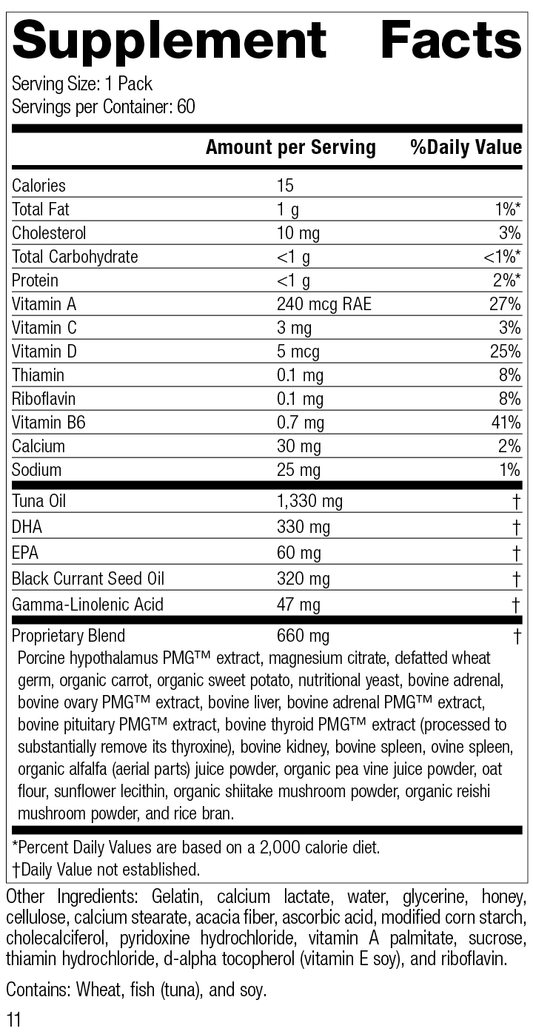
General Female Endocrine Pack, 60 Packs
General Female Endocrine Pack, 60 Packs
Vendor:Standard Process Inc(42)Regular price $125.95 USDRegular priceUnit price perGeneral Female Endocrine Packs provide a protocol of endocrine system support supplements to support a healthy endocrine system and overall well-being.* Excellent source of vitamin D, vitamin B6, and antioxidant vitamin A Each box includes a 30-day supply of individual packs (taken morning and evening). Each pack contains: Black Currant Seed Oil (one softgel) — Contains the essential fatty acid gamma-linolenic acid (GLA)* Catalyn® (two tablets) — Contains vital nutrients, encourages heal...
LET'S LEARN MORE ABOUT
Keeping Your Pet’s Thyroid Healthy
Common Thyroid Issues in Pets
Common Symptoms of Thyroid Imbalances in Pets
Natural Thyroid Support for Pets
Talk to Us
If you need help with starting up the course or getting access to the recipes and videos, please don't hesitate to contact us via call/text at +213 394 2923 / email drruthroberts@drruthroberts.com.


















